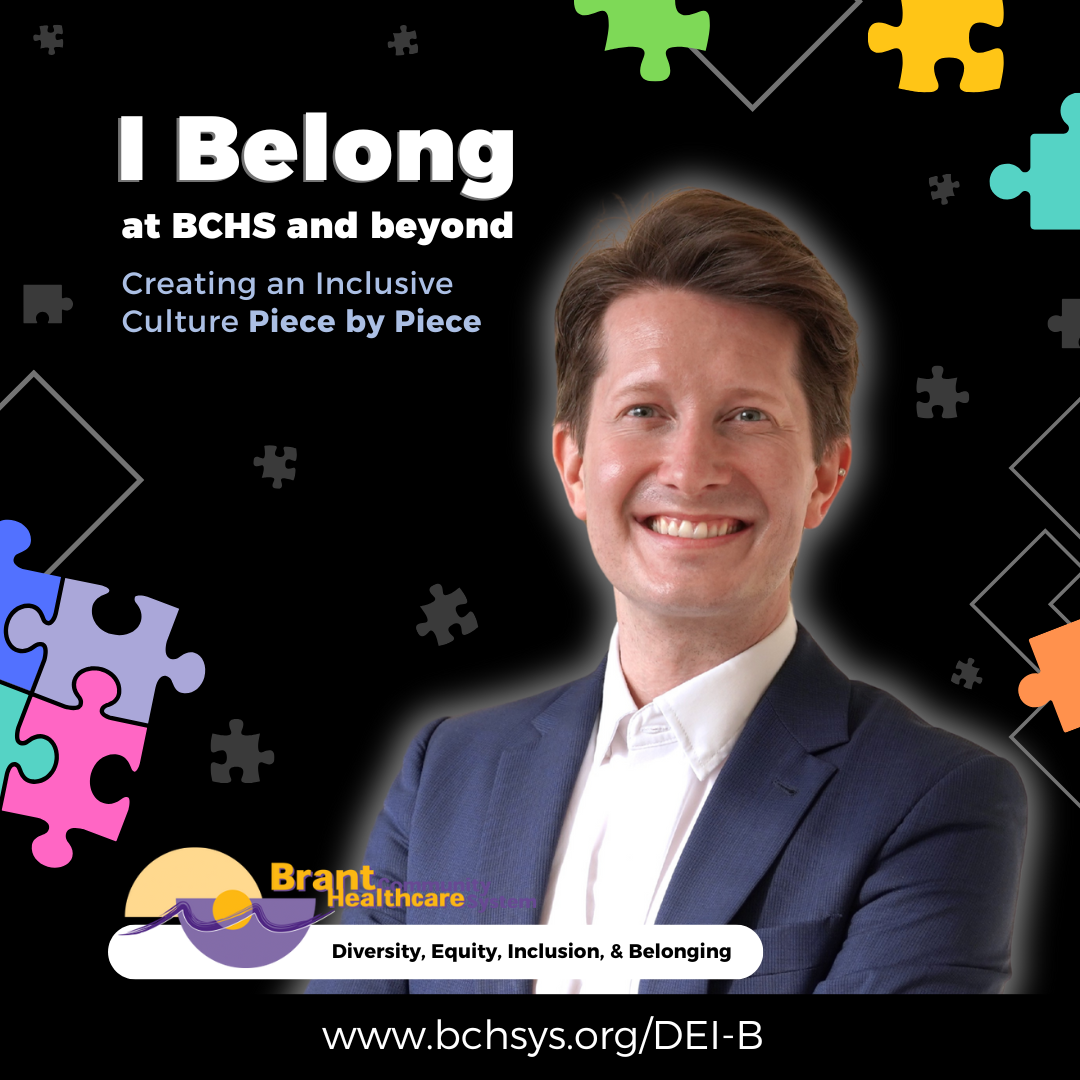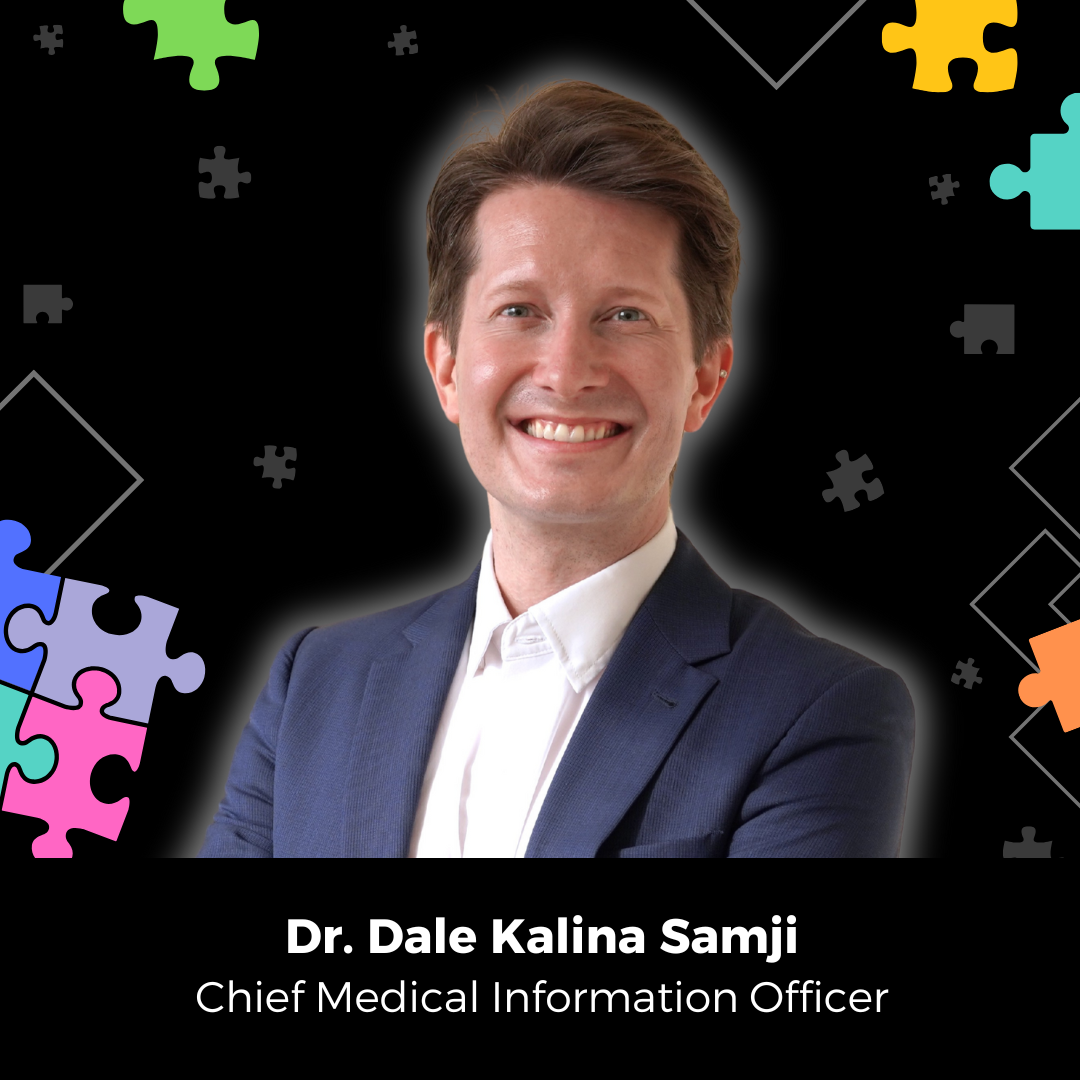Dr. Dale Kalina Samji: Transforming Systems by Centering Identity


Dr. Dale Kalina Samji didn’t plan to become a public face of healthcare transformation. He simply refused to work in systems that excluded people. As Chief Medical Information Officer at BCHS and an infectious disease physician, he leads with both technical fluency and lived experience. What distinguishes him is his deep awareness of how identity shapes both caregiving and leadership.
Born in Oakville and raised in a Czech-Canadian family, Dr. Kalina Samji grew up at the intersection of multiple cultures and identities. “I’m gay. I’m the child of a refugee. And I’ve worked in institutions where that wasn’t always safe to say out loud,” he shares. “Those experiences shape how I lead. I can’t untangle them from the work.”
From Protest to Practice
Dr. Kalina Samji is deeply aware that the freedoms he enjoys today are not accidental. Recently married to his husband, he recognizes the deep influence of the queer activism that came before him.
“I’ve been the beneficiary of decades of activism,” he reflects. “Marriage equality wasn’t always an option. It was already legal before I even thought about getting married, and I owe a lot to people who fought when it wasn’t safe to be visible.”
Dr. Kalina Samji sees visibility not as a personal milestone, but as a form of accountability. It informs the kind of leadership that he brings to the workplace and his communities and honours the history that he is building upon.
“Inclusion isn’t something we add later. It’s something we design for from the beginning,” he says. “I’ve had doors opened for me. It’s my job to help keep them open for whoever comes next.”
At BCHS, Dr. Kalina Samji is turning that drive into systems change.
Listening First, Leading Better
“I used to think belonging was about the absence of discomfort. Now I know it’s about being able to bring your difference into a room and have it shape what happens next.”
Whether it’s introducing pronoun functionality into health systems, pushing for equitable sexual health screening, or supporting staff to show up fully, he views his role as creating conditions for others to thrive.
“I’ve had privilege. I still do. But I’ve also had care taken from me because of who I am. That’s what drives me,” he says. “When my identity was used to restrict my ability to treat certain patients, I knew something had to change.”
As Executive Sponsor of the TeamBCHS 2SLGBTQIA+ Resource Group, Dr. Kalina Samji approaches advocacy with a mix of confidence and humility. “I’m not the loudest voice in the room, and I don’t need to be. My job is to listen, to back people, and to make sure the system doesn’t erase them.”
His experiences, from public pandemic leadership to private discrimination, have made him deeply attuned to who gets heard and who gets left behind. That awareness, paired with his digital transformation lens, is reshaping how BCHS thinks about access, design, and belonging.
To Dr. Kalina Samji, belonging isn’t just a feeling – it’s a function of design. “If people can’t bring their full selves to work, we provide worse care.”
Whether it’s patients trying to change their gender marker or staff navigating cultural bias, Dr. Kalina Samji believes the smallest fixes often reveal the biggest truths.
“I recall living in the Czech Republic and people being unable to pronoun my name. Some tried. Some didn’t. That confrontation with ‘otherness’ has shaped how I treat names now,” he shares.
“Effort matters. Taking the time to ask questions and stay curious. That’s the only way systems get better.”
This feature is part of the “I Belong” campaign, where BCHS employees, professional staff, and volunteers are given the opportunity to share their personal stories, strengthening a culture of belonging that empowers each individual and deepens our collective mission to provide exceptional care. Together, we’re creating a more inclusive, connected, and empowered BCHS.





